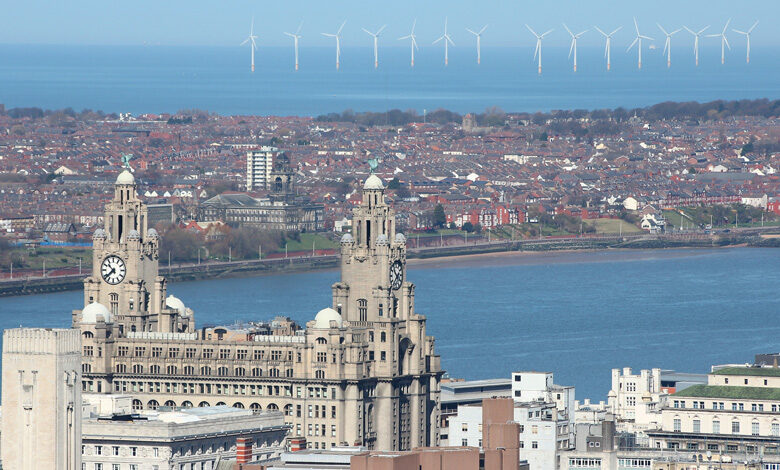Lessons from the UK offshore wind rollout

 University College London Research Fellow, Phil McNally, talks about the lessons to be learnt from the rollout of offshore wind in the UK.
University College London Research Fellow, Phil McNally, talks about the lessons to be learnt from the rollout of offshore wind in the UK.
History
McNally opens by describing the UK as having been a “trailblazer” in the development of offshore wind technology, adding that “although the UK’s share of global offshore wind capacity has fallen, that can be seen as a positive development”.
“Between 2011 and 2020, the UK share of global offshore wind energy production was over 50 per cent for the first three years and it has been declining as a proportion ever since. That is not because the UK has been slowing down but rather that the rest of the world has been increasing and speeding up its production.”
A further development relevant to ensuring the success of renewables, McNally explains, is increasing energy efficiency. “Total UK electricity generation has declined over the last 15 years because we have seen energy efficiency gains across the UK economy.”
McNally also points to the scale of technological advancement as having played a strong contributing factor in the UK’s relative success in offshore wind production. “In 1990, we produced a 35m-high offshore turbine, which had 0.2MW of production capacity. Now, we are installing turbines exceeding 200m in height which can power 15MW.”
These developments, McNally says, have led to “a dramatic fall in emissions from the UK power sector,” adding that “emissions in the electricity sector have been reduced by 74 per cent in the UK since 1990”.
Action required
McNally outlines the scale of technology deployment required over the coming years to meet the UK’s targets for net zero by 2030.
“In 2019, we had installed 30,000 heat pumps but by 2030, we need to be installing one million heat pumps per year. There was 10GW of offshore wind installed between 2004-2019, the target for the UK Government by 2030 is now 50GW.
“We somehow have to deploy 38GW of offshore wind in the next eight years. At the same time, we also have to be developing hydrogen from an emerging technology to a fully functioning sector.”
Lessons learned
McNally identifies eight broad lessons to be learned from the UK’s rollout of offshore wind:
Long-term political commitment is crucial to drive low-cost deployment and domestic benefits: “Offshore wind has benefitted from consistent political support, which has fostered confidence across industry to invest in Ireland in related research and development, supply chains, and skills. Certainty is crucial to a realistic deployment pathway for other low-carbon technologies.”
Tackling the cost of capital should be a central objective of policy: “The cost of capital is a critical development of the overall project cost. By reducing investor risk, and therefore the cost of capital, a Contract for Difference (CfD) – the British Government’s main mechanism to support large-scale renewable projects – can deliver a reduction of between 10 and 21 per cent on overall project costs. This focus on cost of capital has been hugely successful with offshore wind and there is evidence that it has had a strong influence on global deployment. A similar approach should be followed with other early-stage technologies to ensure an affordable transition for consumers both in the UK and globally.”
The need to adapt support to the maturity of the technology: “Offshore wind has benefitted from the right support at the right time, whether that was early-stage development funding, supply-chain investment, or the CfD. If technologies are eligible for a CfD but consistently fail to win a contract, as has happened with wave and geothermal power, government should consider whether this is the right type of support, or whether the technology should be pursued at all.”
Design markets around long-term outcomes: “To date, government has followed an approach of increasingly complex market intervention in an attempt to shoehorn low-carbon technologies into a market designed around fossil-fuel technologies. Now that there is clarity on the type of technology required, government must initiate a comprehensive market reform process to ensure that incentives across the system are aligned to deliver a flexible, net zero, cost effective reform by 2035.”
A healthy pipeline is key for competition and supply-chain development: “By offering a reliable revenue stream and a stable timeline of auctions, the CfD has created sustained investor interest in the UK renewables market. This has manifested as a strong pipeline of offshore wind projects bidding into each auction, creating intense competition between developers on cost. A strong pipeline also delivers line of sight, making it crucial to the development of a sustainable supply chain, meaning jobs and economic benefits for the UK.”
Partnership between industry and government can deliver sustained development: “Offshore wind has profited from a close relationship between industry and government through partnerships such as the Offshore Wind Industry Council and the Offshore Wind Sector Deal. Such partnerships are crucial in forming dialogue between industry and government, allowing the articulation of a joint vision and a means of tackling barriers to deployment.”
Strategic systems thinking is required for an efficient transition: “To date, each new wind farm in the North Sea has received a point-to-point connection with the onshore electricity grid, disrupting local communities on the British east coast. The British Government is now considering an offshore transmission system to reduce costs and limit the need for onshore infrastructure. The Government must think strategically to ensure an efficient and political feasible transition to net zero.”
A clear strategy is needed for securing domestic benefits: “The Government has failed to capitalise on the domestic economic opportunities of being an early mover. If UK electricity consumers are expected to pay a premium to commercialise nascent technologies, then they should also expect the Government to secure long-term social and economic benefits for the UK. The failure to capitalise on that opportunity with offshore wind is now being rectified through the Offshore Wind Sector Deal and CfD contract terms, but the Government must take care to analyse and capitalise on domestic opportunities from other net zero technologies.”
| Phil McNally is a research fellow at University College London focusing on electricity markets. He previously led low-carbon power policy at Energy UK and net-zero research at the Tony Blair Institute. He has sat on several expert government advisory groups, and specialises on the policy and economic reform required to accelerate the transition to as low-carbon energy system. |





